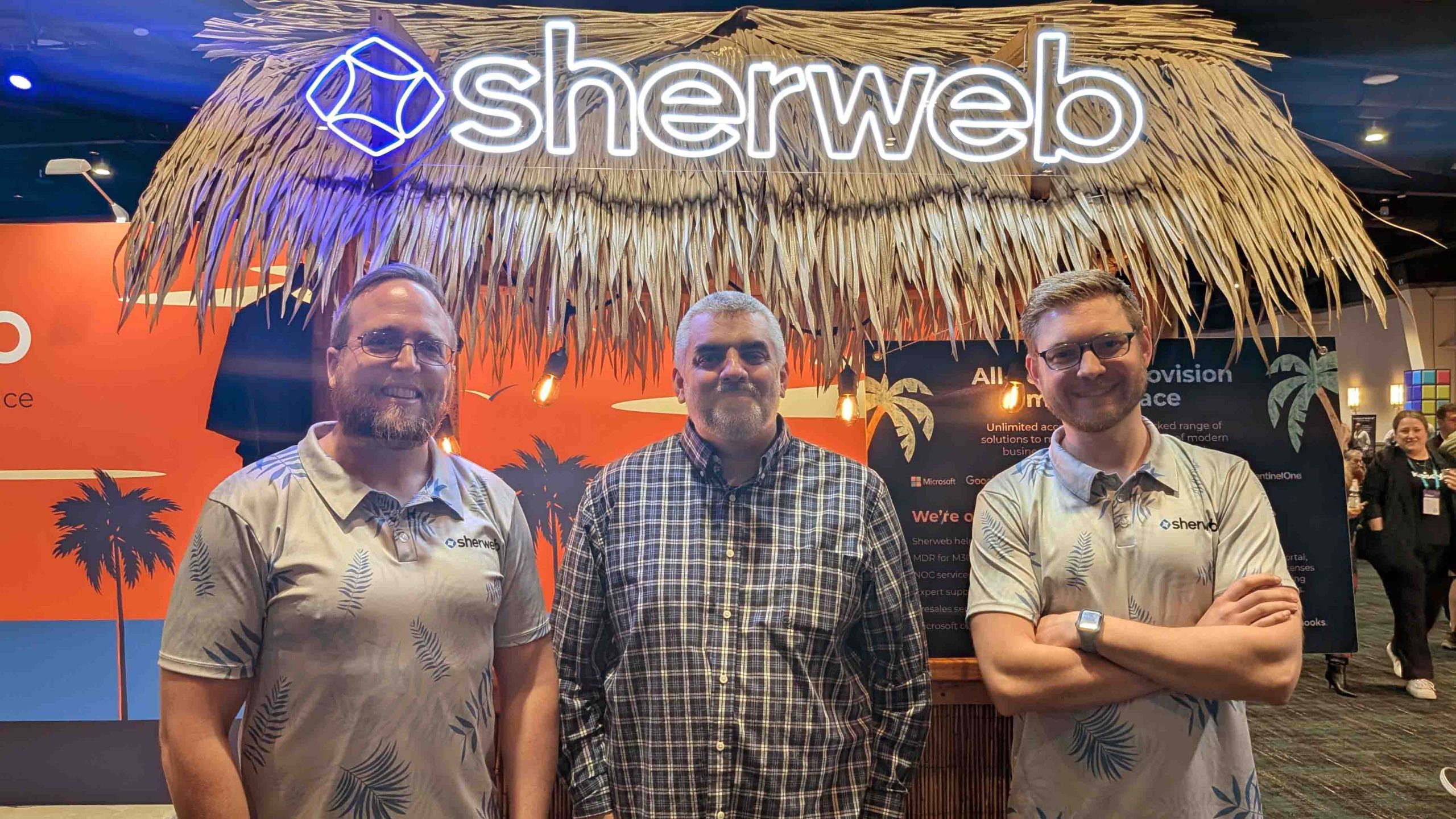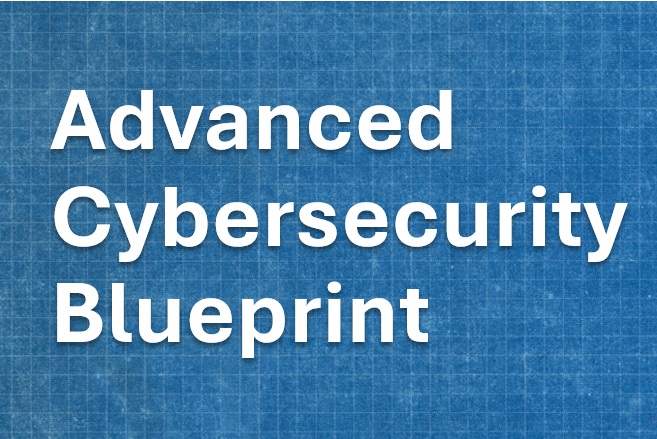Known for its cloud marketplace, Sherweb has been quietly expanding its cybersecurity muscle, investing in vendor integration, technical education, and hands-on enablement that goes far beyond license sales. With new frameworks, roadmaps, and professional services in place, the company is helping MSPs do more than react—they’re helping them lead.
Roddy Bergeron, Sherweb’s Cybersecurity Technical Fellow, and Rick Stern, Senior Director of Platform, are two of the voices driving that evolution. ChannelPro caught up with them at Kaseya Connect Global to dig into how Sherweb has established itself as an advocate for positive change in the IT channel.
Below is the transcript, edited for length and clarity.
How Is Sherweb Evolving Its Cloud Marketplace to Better Support MSPs?
Bergeron: We’ve added several new products to the line card, including usecure, HacWare, DefensX, and Rewst. Excited to have those partnerships. MSPs are starting to adopt those tools. Education-wise, we put out a 40-page guide on building a cybersecurity program. No pitching in it, just my take on how to build a program from scratch in the MSP space.
Stern: We’ve also reinvented how we’re integrating with vendors in the MSP space. It’s more uniform with faster go-to-market, more flexible, and a lot more vendor data inside the Sherweb portal. On the Cumulus side, we’ve improved PSA integrations and are launching some really innovative features in our self-service portal. That includes custom catalogs that let MSPs can, for free, hand to their clients to reduce calls when orders need to be placed, amended, or canceled.
What Pain Points Are MSPs Facing in Distribution Today?
Stern: I was talking to one of our partners at our Advisory Council. He said, “I’d rather not deal with one specific vendor, whatever you can do to enable that, do it.” A good cloud marketplace partner like Sherweb is a time saver and aggregator. We can help MSPs make decisions about what kind of stack they want while reducing the hassle.
Bergeron: A lot of partners are struggling to show value in cybersecurity. I try to teach them that it’s not about dollars and cents. It’s about the internal feeling clients have about you and your services and making sure they understand that you’re working to mitigate their risk.
Most MSPs aren’t trying to be the most expensive or the cheapest; they’re trying to find that sweet spot where they can demonstrate intrinsic value.
My favorite clients as an MSP were the ones that didn’t need an explanation when we raised prices 5% because they felt the value. They trusted us because we talked about risk and business outcomes, not tech. That’s part of the education we’re doing at Sherweb—helping MSPs have those conversations.
What Do MSPs Misunderstand About Today’s Cybersecurity Landscape?

Roddy Bergeron
Bergeron: A lot of MSPs are technology-first. They ask, “What tool can I put in place?” But there are other things involved like people, process, and policy. A well-rounded security program isn’t just technology-focused.
You can’t talk tech to clients. A lot of the time they don’t get it and they don’t care. No one cares if you’re using SentinelOne or Fortinet. They just want to know that they’re protected.
Stern: A tool without an established process or that isn’t leveraged effectively is just going to sit on the shelf. It has to be part of a system, or it doesn’t deliver value.
Bergeron: When you can start to measure gaps in your security program then you have an effective program built around a framework and best practices. Figuring out where you have to go and how you have to improve.
What’s Something Sherweb Offers That MSPs May Not Realize?
Bergeron: Many products, including AI products like Microsoft Copilot, are dead ends for MSPs unless they can explain how or why it can help the business. You don’t want the client saying, “I’m spending $1,000 on Copilot licensing and I don’t know what I’m getting out of it.” We have a professional services team that will help build those use cases and help demonstrate ROI. Plus we help put the right protections in place to prevent data leakage. It’s a fairly new professional service that we offer but it’s very powerful.
Stern: We’re not just a CSP, we’re not just a distributor. We come to the table with you to help clients understand the quote that you’re putting in front of them. We help MSPs sell the “why” and craft a story around this particular stack, product, subscriptions that are a great fit for this vertical, this client, and this situation.
Bergeron: We also have people like me. I don’t sell a single product. An MSP might come to us and say, “I feel like my security program doesn’t have all the bells and whistles it needs.” I’ll sit down with them and help them build a roadmap. Of course, I hope you’ll buy the product or licenses you need, but I just want to see you succeed.
Cloud Marketplaces Work with Both Vendors and MSPs. What Do Vendors Often Get Wrong About MSPs?

Rick Stern
Bergeron: Some vendors are still stuck in a transactional mindset. “Buy a license, get support” is the bare minimum. MSPs want a real partnership. Some vendors do get it but some are still too transactional.
Stern: I agree 100%. A vendor might have a flashy booth and a novel idea, but if it doesn’t solve a real problem MSPs face daily, they’re not going to gain traction with it. They’re not connecting with people who need their product, who have problems that their product could actually solve.
At Sherweb, we look hard at our platform, talk to partners day in and day out, and look at the data. We want to understand what problems they’re using our platform to solve and figure out how we can solve them in a faster, better way. That’s what vendors need to understand.
With Tariffs, Supply Chain Issues, and Other Economic Pressure, Should MSPs Be Worried?
Bergeron: Software distribution as we do isn’t as affected by tariffs, it’s mostly hitting hardware. For a lot of MSPs, it’s like, let’s make some smart decisions. It’s time to look at their technology stack and say, “All right, where are my deficiencies? Should I consolidate my stack down?” Because if you’re going to be doing a lot of hardware purchasing in the next year or so, tariffs may hit you pretty hard.
There’s always going to be economic uncertainty, right? That’s the name of the game. Every five years, MSPs who have a good strategy and game plan weather those storms. I mean, they grow and pivot into different industries. We try to move more cloud services and do less on-prem hardware. There’s always going to be some way to pivot from it, and the smart MSPs are going to look at those methods now.
Stern: I think we all have relatively short memories. This isn’t the first time this has happened. We had the COVID pandemic, high interest rates, and the Ukraine war, which dragged the global economy down for a bit. This is just another blip. MSPs will have to think critically and strategically about how they want to get through it.
If short-term hardware purchases are coming up that could be impacted by tariffs, MSPs should do that due diligence now. From a software perspective, there’s less of an impediment to act—it’s more about how it aligns with their long-term plan.
Think about cloud. Think about software.
What Should MSPs Focus On to Grow in 2025?
Stern: I think they should look at their stack realistically. They should remind themselves that they are providing a critical service to their clients.
The best thing they can do is find the best set of solutions that is good for them and good for their clients. Even more so lately, I think having a multi-year plan is important.
If nothing happens, this is the direction. Or if something small happens, this is the direction. And if something catastrophic happens, we have something to fall back on. A multi-prong approach is something your team should always have.
Bergeron: Embrace AI. It’s not going away. Your clients are probably already using it. You need to secure their usage and guide it. Also, revisit your sales process. Don’t settle for a 25% close rate—aim for 50%. Tighten your process, so you’re not wasting resources chasing the wrong prospects.
What’s Next for Sherweb That MSPs Should Know About?
Bergeron: We’ve got some good security vendors coming in. Our vendor management team is doing a rock-solid job bringing more people in. We’re picking vendors that map to CIS controls.
We’re doing a lot more educational programming. We have roadshows where there are no pitches. Even the vendors that come and nobody is pitching, you’re doing educational work. We’re trying to change the landscape where everything feels like a pitch.
Hopefully, you get some tips you can take back. You buy a license, you don’t buy a license. Either way, you still improve your business.
I have to mention our marketplace again. We’re moving faster with go-to-market around vendor partners. That is just the first step in reinventing how our partners are purchasing, provisioning, and extending client relationships. There’s a lot of interesting stuff coming. I can’t talk about it yet, but we are cooking.
Stern: Our cloud marketplace is evolving quickly. What we’ve launched so far is just the beginning. We’re redesigning how partners purchase, provision, and extend services to clients. I can’t share all the details yet, but we’re cooking up some big things.













